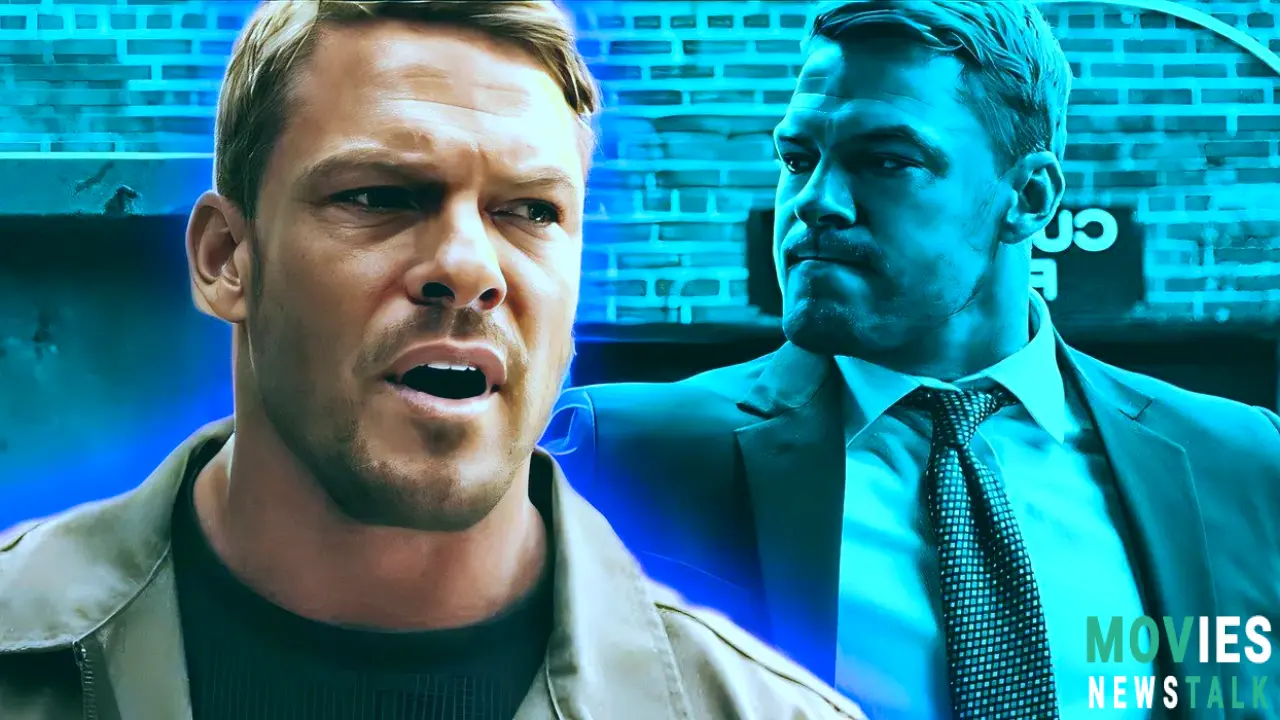Reacher Season 3: Will It Follow the Same Deadly Pattern?
Reacher Seasons 1 & 2: A Tale of Two Deaths
Amazon's Reacher, based on Lee Child's Jack Reacher novels, is a hit! Seasons 1 and 2 were both critically acclaimed and commercially successful; thus its renewal for season 4 is not surprising! Before we all anticipate the release of season 3 however, a closer examination reveals something interesting, an oddly specific thematic arc found consistently throughout this series' story progression. Both seasons share a striking similarity:they start with the death of someone close to Jack Reacher (Alan Ritchson).
Season 1 kicks off with the murder of Reacher's brother, Joe, in Margrave, which becomes the catalyst to unravel a hidden conspiracy in that small town; a series of unfortunate events culminating in this death triggers the central narrative, setting things into motion. Similarly, Season 2 starts with a distress signal from Neagley, revealing the death of Franz, a former colleague from Reacher's 110th Special Investigation Unit. The revenge plotline driving Reacher's actions here becomes crucial in that unfolding narrative!
These deaths are what makes those initial stories so incredibly important: it shows exactly what that very first central conflict that triggers Reacher into action truly is. The thematic use of someone closely related being dead— creating an element that highlights vengeance asReacher's primary drive becomes evident, becoming a critical plot point, and adding complexity which drives his investigative skills; especially considering how central a driving motivation such a personal loss is to the hero's arc.
Reacher Season 3: Dominique Kohl’s Death and a Familiar Opening?
Reacher season 3 adapts Lee Child's Persuader, the seventh book.Persuader opens with an undercover mission rather than a death, however as it goes on, a key aspect reveals the underlying motivations; a long-running personal conflict involving Francis Xavier Quinn, and his past misdeeds, all coming back to haunt the narrative. Asthe story develops, another critical revelation emerges concerning his previous crimes; all focusing on those very real consequences resulting in Reacher's colleague,Dominique Kohl'smurder. AndReacher learns of Quinn's involvement.
Even though the novel's main narrative arc doesn’t include a key plot element at its beginning: it introducesReacher’s main motivation early, which is what gets the story moving: revenge for a personal loss, driving the whole narrative structure of the book. Season 3 could totally mirror Seasons 1 and 2 by portrayingKohl's murder—establishing this as the inciting incident triggeringReacher's quest againstQuinn, and mirroring that particular creative storyline decision used so effectively before! Even a small adaptation such as showing the importance of his initial actions and reasons for this particular investigation makes total sense considering those key events, themes and character behaviors established in this particular arc.
Dominique Kohl: Following in the Footsteps of Joe and Franz
Reacherhas stayed pretty faithful to those books it adapts so far. This indicates thatKohl'sdeath may mirror how JoeandFranz'sdeaths drove the narratives for Seasons 1 and 2. This makes that narrative similarity exceptionally valuable and makes for creative cohesion: that thematic repetition creates an understanding which makes those kinds of reveals much more impactful than merely being unique one-offs that happen seemingly out of nowhere.
It creates greater cohesion. Reacher's motivations will largely center on avenging Kohl's death; continuing the revenge plot. It adds even more; introducingPaulie, a formidable new foe supposedly bigger and stronger thanReacherhimself! Raising stakes immensely.
Conclusion: Will the Deadly Pattern Continue in Reacher Season 3?
Reacher's creative storytelling makes these similarities critically important: A recurring plot device— beginning each season with the death of someone close toReacher. It has proven successful and drives much of this core narrative in those past two seasons, but its use inSeason 3, remains largely unconfirmed; but those potential storyline details in the novel suggest a mirroring approach to narrative development in the TV adaptation is probable. Will those viewers already aware of these repeated creative decisions find these reveals more satisfying, generating more attention because of these similar plot devices used consistently across the series’ storyline? Does using this familiar trope result in satisfying, engaging content and do audiences expect these kinds of reveals to maintain viewership? This strategy alone makesReacherfar more successful than some of the other spy and thriller series in recent times; it is something fans enjoy. Will season 3 maintain this strong formula; a strong opening which mirrors those in the past and generating greater levels of viewership because of that predictable narrative approach used consistently across the show’s development? We'll have to wait to see what happens!

